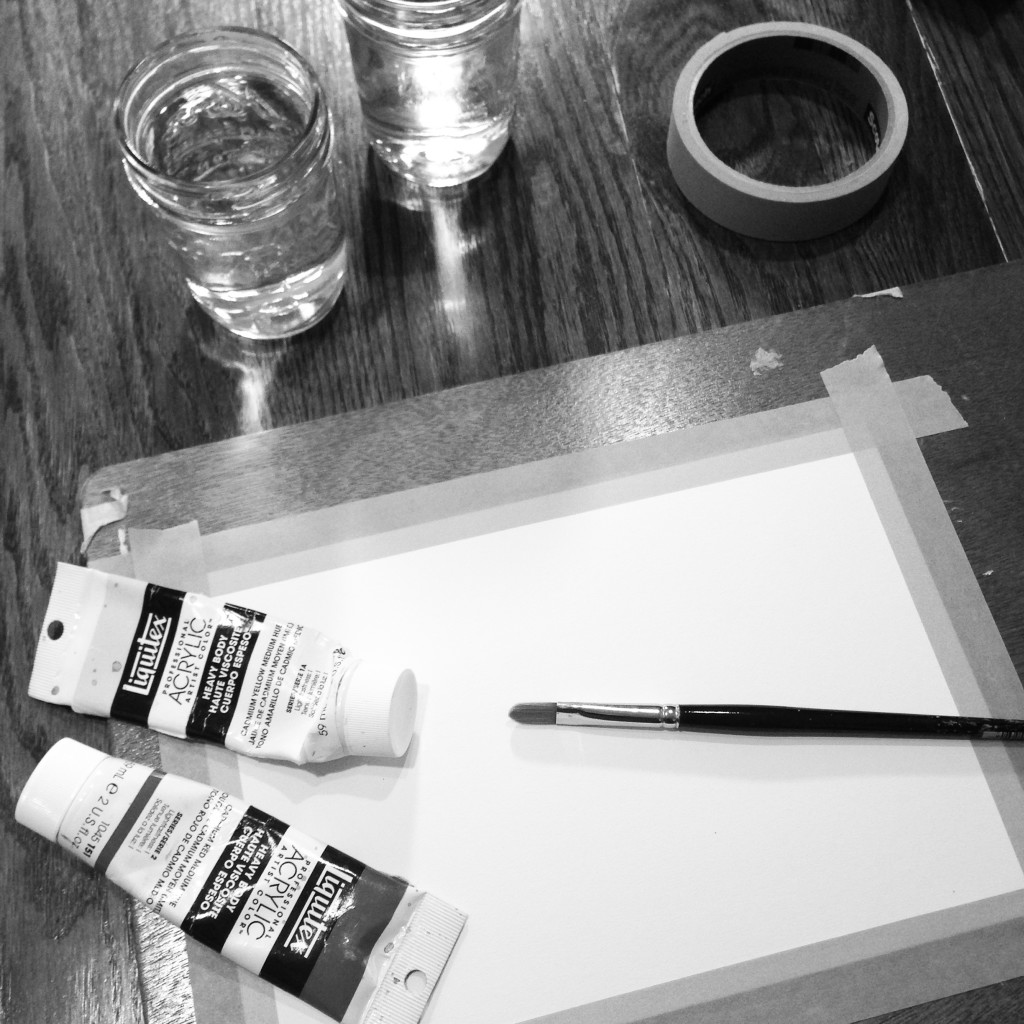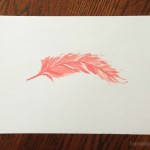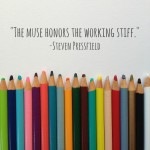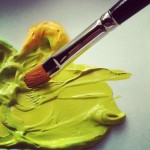Each time I attempt to create something—a story, drawing, craft, or a meal, frankly—I feel the need for it to be monumental. Whatever I make, it’s not OK for it to be OK. It needs to be incredible. Awe-inspiring. (Which is asking a lot of when it comes to a weeknight dinner.) Some of this can be attributed to perfectionism, but I also think it’s part of the complicated resistance that all artists must overcome. This week, I’ve challenged myself to complete a drawing or painting each day. The point of the challenge is to develop the habit of doing creative work even when I don’t feel inspired. I’ve felt the resistance every time.
On Sunday, my drawing muscles were out of practice. It had been a long time since I put pencil to paper or analyzed the colors in a still life. On Sunday night, thirty seconds into sketching, the critic showed up. The inner one, the one who knows exactly what to say in order to get me to put down my colored pencils and find a snack. In response to the critic’s nagging, I put down my pencils. But instead of pouring a bowl of granola, I sat with the resistance. I reminded myself that this drawing wasn’t a masterpiece, it was an experiment. A lesson. Then I kept drawing.
In moments like this, it’s helpful for me to remember a story I once heard. Like so many stories, the names and details have slipped my mind but the main idea is still powerful: There was once a man who wanted to study with a well-known Danish ceramic artist. It was incredibly difficult to get into his classes, but after a long wait, the man secured a spot. The class was full of people eager to impress their famous teacher. On the first day, as the students began to sculpt their clay into pots, the teacher walked up and down the rows, observing their work. The pressure was palpable. Everyone wanted to prove themselves. Days later, after the pots had been fired, the teacher walked the room again. The man was convinced he had done his best work. “Good,” the teacher said. “Now I want you to smash them.” His words were met with a shocked silence. The teacher continued, “You will be smashing the first 100 pots that you make with me.” As awful as it seemed, the teacher was giving his students freedom. The following 99 pots became lessons, places where the class could create without the pressure of past masterpieces or past failures. Their focus was shifted from the end result to the process itself.
I reminded myself of this when I was painting and drawing this week. I would look at my work—however disappointing or pleasing the end result—and tell it,”You are one of many.” It made it easier to quiet my mind and simply do the work. And when I was doing the work, I remembered how much I enjoy the process itself—how I deconstruct a subject with my eyes and rebuild it with my brush. Sometimes when I paint, I feel as if I’m seeing all the little fragmented bits that make up the world, shapes and light and darkness. It’s a discovery that can only be made with a work in progress.




